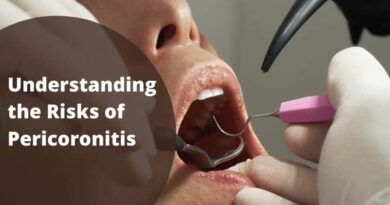6 Ways Mindfulness Helps Addiction Recovery
Mindfulness is a popular form of meditation premised around the idea of bringing oneself into the moment, without judgment. Though it is derived from the Buddhist practice of sati, mindfulness as it is practiced today is largely secular, making it easy for people from a wide variety of backgrounds to get into.
As with other meditative practices (such as prayer and transcendental meditation, to name a few), mindfulness has been shown in different studies to bring about a variety of both mental and physical benefits. In particular, the practice has shown a lot of promise for treating different kinds of addiction, including substance use disorders (SUD).
Over the past two decades, mindfulness has exploded in popularity in Boston rehab centers, and its principles are now part of mainstream addiction treatment. It is notably a central part of dialectical behavior therapy, a type of cognitive-behavioral therapy (CBT) used in cases where the patient has poor emotional regulation. There are also many other mindfulness-based therapies used for SUD, including but not limited to mindfulness-based cognitive therapy, acceptance and commitment therapy, and mode-deactivation therapy, just to name a few.
Table of Contents
Benefits of Mindfulness
Below are just some of the benefits of mindfulness for people attempting to quit self-destructive habits. Please get in touch with a mental health professional to learn how to safely implement mindfulness in your day-to-day life.
Improves self-awareness
Given that mindfulness’s goal is to help practitioners get into “the moment”, mindfulness is especially suited for helping recovering individuals get a better sense of the present. Mindfulness, more than other kinds of mediation, lets practitioners focus on and understand their own ways of thinking. This kind of structured introspection can help easily distracted individuals process complex ideas and emotions. This specific benefit of mindfulness has made it a valuable part of current mainstream psychiatric practice.
Helps with emotional regulation
People in recovery tend to have problems with emotional regulation. As their brains struggle to readjust in the absence of substances or other self-destructive habits, their moods may become volatile, preventing positive interactions with others.
Regular mindfulness practice can help recovering individuals preempt and control these extreme emotions. This can be crucial in helping them relate with others better and can help keep them out of bad situations caused by their emotional outbursts.
Helps improve patience and tolerance
As with most people undergoing mental health problems, people in the early stages of addiction recovery usually have problems with tolerating distress. Mindfulness has been successfully used in clinical settings as a preventative intervention, allowing recovering individuals to better tolerate and even accept situations that would have previously led to violent outbursts or self-harm. Being able to tolerate difficult experiences better also makes it possible for the individual to try out other forms of therapy that could help with their mental health.
Improves empathy
Addiction and other mental health conditions that frequently co-occur with it like depression and anxiety make it difficult for affected individuals to relate to others. This social difficulty may make it difficult to succeed professionally or hold relationships, increasing the likelihood of self-destructive behavior.
Thankfully, the deeper, focused introspection brought by mindfulness isn’t just beneficial for self-awareness— it can also help improve empathy as well. Evidence suggests that regularly practicing mindfulness and other related meditative practices help improve empathy and increase prosocial behaviors. Given that the state of one’s relationships with others can influence long-term sobriety, practicing mindfulness is worth a try if the person finds it hard to relate with others.
Reduces stress and anxiety
Stress and anxiety are extremely common among people recovering from addiction. Mindfulness and other meditative practices have been shown to not only reduce mental distress in anxious and stressed-out individuals but they have also been linked to physical benefits.
Mindfulness practice has been linked to lowered resting heart rates as well as lowered levels of the stress hormone cortisol. Lowered cortisol levels takes the body out of the “fight or flight” mode, which while occasionally useful, can lead to all kinds of physical ailments when experienced for a prolonged period. This lowered cortisol level has also been associated with better quality sleep, another issue people recovering from addiction have problems with.
Stimulates brain growth
There is some evidence that actively practicing mindfulness can help the brain recover from physical trauma. Further studies have also suggested that it can also help with psychological trauma, which has recently been linked to lesions in the brain. As depression, trauma, and addiction are all linked to maladapted brain connections, mindfulness practices may hold the key to quickly rebuilding new connections that bypass these.
Thanks to advances in science, mindfulness and other forms of meditation are now finally being taken seriously as tools in aiding recovery from addiction and other psychiatric conditions. While not a substitute by itself for medication-assisted therapy and psychotherapy, including mindfulness or similar meditative approaches to one’s routine may help improve positive outcomes for addiction and related conditions.



